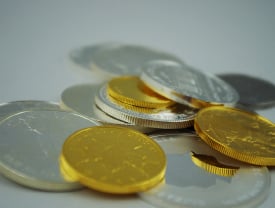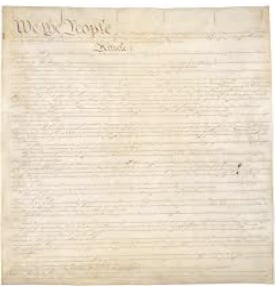The Constitution of the United States of America is not merely a set of suggestions. So when the Constitution says, in Article I Section 10, “No state shall make any Thing but gold and silver Coin a Tender in Payment of Debts”, it means exactly that.

Recognizing that the departure from gold and silver backing to our money has led to crushing debt and great financial instability, a few freedom-minded state legislatures have begun to consider how to defend themselves and their citizens.
And such measures start a conversation with the public about the useful role that gold and silver can play in protecting one’s purchasing power, while hedging against the abuses of Washington politicians and Wall Street bankers.
The more people are exposed to gold and silver, the more they are likely to recognize their superiority as media of exchange and stores of value.
Gold and Silver Are Money
Legislation that reaffirms gold and silver as money dispense with the notion that gold and silver are merely investments or speculations.
Gains on investments, more times than not, are taxed in one way or another. But gold and silver are “money” and imposing a tax on the exchanging of one form of money for another is both ludicrous and unjust.
Citizens should be encouraged to save in real money. The inflation tax on every person holding fiat money whittles away at their savings and purchasing power. While the Federal Reserve Note “dollar” has lost more than 97% of its purchasing power since the Federal Reserve System was created in 1913, gold and silver is a much better store of value, having risen 60 and 20-fold, respectively, in their dollar-denominated price.
Devaluation of “fiat money” is no accident. Even John Maynard Keynes, the socialist who developed today’s economic playbook for central planning through monetary policy, confessed: “By a continuing process of inflation, government can confiscate, secretly and unobserved, an important part of the wealth of their citizens.”
Repeal Crippling Burdens on Dealers Who Buy Precious Metals from Members of the Public
Key to precious metals’ use as money and a form of payment is elimination of regulations that decrease its liquidity – and therefore its usefulness. Many state and local jurisdictions impose draconian rules on dealers who buy gold and silver from the public, reducing options, raising transaction costs, and endangering financial privacy.
Dealers are often required to collect personal information from sellers, including names, addresses, social security numbers, voter identification cards, and copies of driver’s licenses. Furthermore, dealers have been forced to upload all this personal information daily into law enforcement databases, along with pictures of the metals purchased. And finally, some jurisdictions bar dealers from re-selling the gold and silver to anyone for as long as seven days, forcing them to tie up and large amounts of capital and absorb market risk.
It is unimaginable to consider the government forcing a merchant or buyer of lima beans, for example, to disclose or collect personal information. These discriminatory requirements – which don’t apply to redeeming paper money, only redeeming gold and silver – violate basic privacy rights of individuals and substantially burden those who provide important liquidity to gold and silver transactions.
States Shouldn’t Wait for a Monetary Crisis to Devastate Their Citizens and Economies
More fundamentally, the fact that bills such as these are being introduced speaks to an important mindset surrounding gold and silver as money.

Assuming we respect the constitution, we must accept Article I Section 10 to mean exactly what it says. The implication of this is simple yet resounding: in the question of whether or not states will adhere to their responsibility to make gold and silver a tender in the payment of debts, the burden of proof should fall on the lawmakers and bureaucrats as to why gold and silver SHOULD NOT play this role, not the other way around.
The passage of state legislation that promotes constitutional money is becoming more and more urgent as financial shenanigans of central banks and governments increasingly spin out of control. Bills like these move us toward a new acceptance and use of gold and silver as money. We hope more states will pick up the mantle before an all-out monetary crisis puts their citizens and their economies at grave risk.



